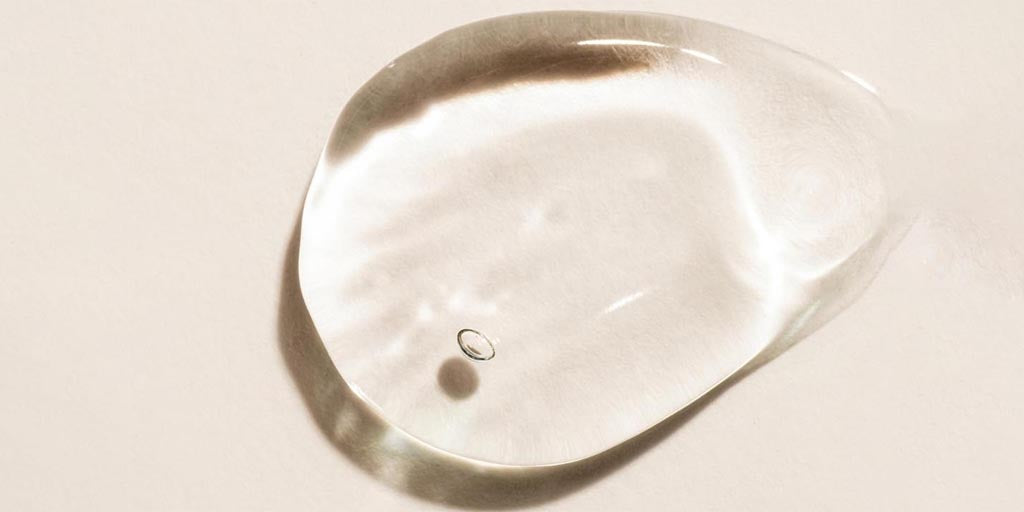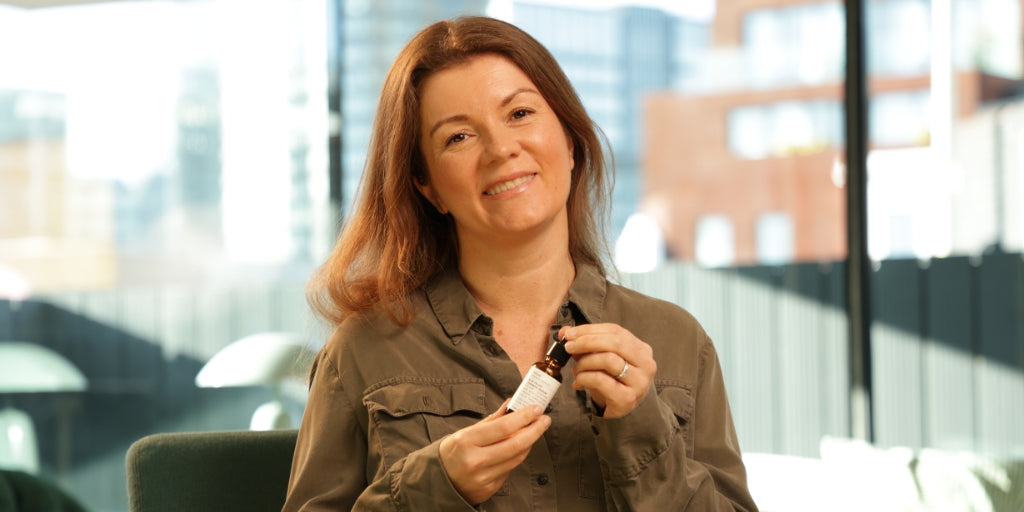Busyness has become a bit of a badge of honour in our society - and no wonder, when our hectic schedules are all trying to juggle careers, a social life, family and a tidy house as well! Unfortunately, all that rushing around can cause your body to hang on to stress, which isn’t ideal.
Perhaps you need tips on how to destress after work, or how to practise mindfulness, or perhaps you’re hoping to dedicate a full day to relaxing at home! However long you have, and whatever your style of relaxation, we have a few ideas on where to start...What is stress?
1. What is stress?
2. What causes stress?
3. What does it do to the body?
4. How to avoid stress?
5. What does unwinding mean?
6. Why is it important to unwind?

What is stress?
Stress has a bit of a bad rap. It can actually be a positive thing: stress is what causes you to produce adrenaline and react quickly to danger.
However, in our everyday lives, we don’t really need to react to danger. We also tend to experience a build up of stress, rather than isolated incidents.
This stress build up can wreak havoc on our bodies and minds - because, where adrenaline is fast-acting and fast to fade, there’s another hormone in the mix: cortisol.
Designed to control many areas of your body during a fight-or-flight situation, there are cortisol receptors all over your body. In times of genuine danger, this is great, and allows your body to respond quickly and efficiently.
However, cortisol is known as the ‘stress hormone’ for a reason. Think of it like an alarm button: push it once and the correct triggers are set off. Hold it down continually and you end up with 16 fire engines and 22 ambulances… or just a bunch of stress side effects!
What can cause it?
Modern life comes with a variety of stressors. These aren’t necessarily traumatic life events - happy moments like getting married or accepting a new job can cause a whole bunch of stress too.
Often, stress coincides with large changes in our lives like moving house. Luckily, this type of stress normally settles down as you get used to the change!
Strangely, a lot of our stress nowadays doesn’t come from external sources at all - instead, we get worked up inside our own heads!
Worrying about issues like money or health can also cause stress. A great way to address this is to focus on easing up the root cause - for example concentrating on paying off a certain debt - as well as using some of our stress relief tips below!

You can also try to reframe how you look at life, and things that worry you. Our upbringing often affects how we think about problems, and there are ways of seeing things in a new light that can make everything seem less awful.
Framing is simply a name for a belief structure in your head, and your frames are built up over time by your circumstances, your family, and the people you meet.
These frames shape the way you ascribe meaning to events, and so change how you see yourself and how you interpret events and the actions of others.
Reframing your thoughts means that you question your perspective, and consider more positive outcomes to stressful or irritating situations. This is especially useful when considering your self-perspective.
Instead of dwelling on a mistake, try to think about what the lesson you have learned from it has taught you, and how it will help you in the future.
Reframing your thoughts can take place throughout the day, as situations arise, but it can be useful to spend a few minutes going over your day in your head once you’re home
What does it do to the body?
The short-term effects of stress on the body are generally easy to spot, and you will undoubtedly have experienced some of them before! The hormones cortisol and adrenaline are released into your bloodstream, increasing the amount of sugar whilst limiting certain bodily functions, and heightening others.
Together, these hormones make your heart race - and not in a good way. An increased heart rate gets your blood pumping, which is excellent if you happen to need to outrun a tiger - but less helpful if you’ve just had a bust-up with your boss.

You might find yourself having heart palpitations, which are usually harmless but still not very pleasant to experience. Equally, you might find that you’re feeling lightheaded and dizzy, as your body prioritizes your limbs over getting blood to your brain.
Alongside this, your blood vessels will be narrowing, causing a spike of high blood pressure, though this should return to normal levels once the stress has abated.
Meanwhile, you might find yourself with a headache after stressful days. Tension headaches are actually the most common form of headache found in adults, so if you suffer from them, you’re not alone!
Stress headaches often start at the back of your head, spreading outwards. They can also create soreness in your neck, shoulders and jaw.
Once the headache has hit, apply a hot or cold compress to the back of your head, and take a couple of over the counter painkillers to decrease the pain.
To prevent the headaches occurring in the first place, ensure you take regular breaks from screens and work on your posture - tension in the muscles from your shoulders upwards is incredibly frequent in our sedentary, office-based lifestyles, and can be a main cause!
Amazingly, stress has even further reaching effects. Cortisol can affect your stomach, and you might find yourself feeling rather unwell when you’re stressed.
Weirder still, cortisol can trigger a spike in appetite - and numerous studies have noted that stress-induced eating results in a craving for higher sugar, higher fat foods.
Conversely, it can also trigger a loss of appetite! This means that people often gain or lose weight quite rapidly when confronted with high stress levels.
In a cruel twist, high stress levels can make it difficult to sleep… but trouble sleeping can lead to higher cortisol levels!
The best way to combat this dilemma is to do everything you can before bed to destress and unwind. Practising good sleep hygiene is a must - which means no blue-light screens at least an hour before bed!

Equally, if you do wake up during the night, or experience insomnia generally, it’s important to leave your bed so as not to associate the area with difficulty sleeping.
Try to do something decidedly unstimulating (cleaning the bathroom at 4am, anyone?) so that you don’t want to stay awake - tempting though it can be to use the time to finish your book!
How to avoid stress?
Realistically, you can’t really avoid stress in everyday life. However, you can control how you react to it.
A lot of us aren’t even sure how to relax; instead, we carry on working into the night, or pas out in front of a blaring screen. After a busy day, try to make time to do something you enjoy. Bonus points if this is some sort of exercise: both enjoyable activities and exercise release endorphins, which boost your mood, and decrease cortisol production.
If you’re not in the mood for exercise, try to schedule in some ‘me time’. Practise slow beauty in your nighttime skin ritual, pampering and massaging your skin for a couple of minutes away from the kids or work or chores.
Me time doesn’t even have to wait until you get home - there are several things you could do in your lunch break.
Just getting out of the office can be super helpful, especially if you couple a brief walk with practicing some mindfulness, taking in the sights and sounds without letting anything else cloud your brain.
If you’d like to read more about mindfulness, and how it can benefit your life, check out our in-depth blog post.
Another alternative is to take an aromatherapy break. Bring in your favourite roller ball, smooth across pulse points, and breathe in the relaxing aroma, focusing on your breathing and the calming scent.
In fact, mindfulness comes into play in almost all of our unwinding tips. Whether you’re listening to a favourite tune or indulging in a massage to relax you, focus on what’s happening in the moment, rather than past stresses or future worries.
If you’re into art, why not visit a gallery alone one weekday? Not only will you escape the crowds of the weekend, but you’ll have time to really take in the incredible work without distraction.

Equally, there are plenty of ways to relax at home. If you love cooking, concentrate on that! Baking and cooking have long been known to reduce stress, and you’ll be creating something delicious as a bonus!
Just make sure, once you’ve cooked, that you eat without distractions: no Netflix!
Cooking actually works to counteract the effects of stress on multiple levels. Not only does it boost your mood, but healthy, homemade cooking will calm your stomach and stop you from overindulging in the sugary snacks your cortisol levels might be making you crave.
What does unwinding mean?
There’s more to unwinding than simply doing things you enjoy. Getting a change of scenery from the source of your stresses can work wonders - which is why going for a walk at lunchtime is a great way to boost your mood.
If you’re worrying about work, make sure you step away from things that remind you of it. That might even mean not using screens for an evening (we know, it’s hard!), and you’ll soon find joy in finishing things like books or chores that haven’t had your full attention thus far.
Staying away from screens - and in particular, social media and news sites - is important in that it disconnects you from certain feelings.
Instead of seeing picture-perfect lives on social media, spend the evening considering what’s going well in your life, and what positive changes you’ve made in the last year.

While keeping up with the news is sometimes necessary, oftentimes it just stresses us out more, drawing our attention to the evil in the world. Every so often, make sure you have a normal news-free day - or longer period - and seek out positive stories instead.
Why is it important to unwind?
Even if you don’t think you’re particularly stressed, you’re probably holding onto tension anyway.
Destressing and unwinding is particularly good for your overall health, as it keeps your cortisol levels in check and regulates your bodily functions. Taking a break from everyday life means that when you return to your tasks, you’ll feel refreshed and rejuvenated - and ready to concentrate fully on them again.
By regularly practising mindfulness and destressing, even if it’s just for five minutes after work every day, you prepare your body and mind for moments when you are stressed, and need an appropriate response.
When that happens, you’ll have ready-made coping mechanisms and relaxation techniques that will help you know how you best relax and the best ways for you to relieve stress.
Related Articles:





